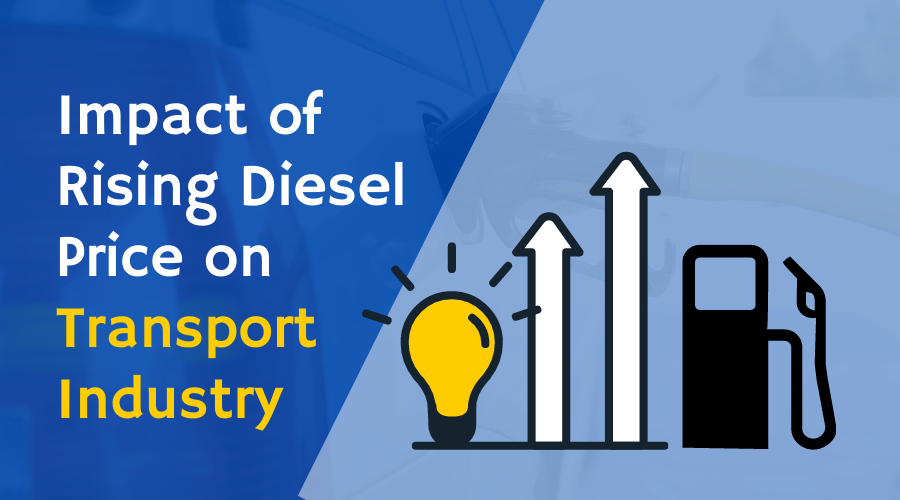Since 2020, the diesel prices have increased dramatically in India. The prices even surpassed that of petrol around the end of June 2020. The primary reason for this sudden surge of Indian retail prices of fuel as compared to the global fuel prices is the hike in tax component, specifically excise & value-added tax.
The tax was hiked to mainly cover the revenue gaps of governments of state and central, who faced acute economic slowdown due to COVID-19.
According to the Committee Report of Kirit Parikh – “A Viable and Sustainable System of Pricing of Petroleum Products”, it had estimated the provisional retail prices for fuel products in a deregulated market such as the current one affected by COVID-19.
The report worked out that the petrol price at international market could be $165/barrel for the recently hiked petrol price of Rs 80 per litre in Delhi, India. In case of diesel, the price at the international market could be over $170/barrel for the prices that the country witnessed in mid-2020.
In this blog of Roadwe, let’s look at the impact on rising diesel prices on transport industry.
With the recent hike in fuel price, the increasing expensiveness of commodities and fuel products has surely impacted the ownership and running cost of vehicles (incl. diesel vehicles), profitability/survival of goods vehicle owners, as well as the preference of new vehicle buyers.
Rising of the diesel prices has also impacted the transportation cost and ignited the shift from a diesel vehicle to an efficient one. The hike also has made transporters think of opting alternative fuel products which are subjected to availability.
Due to the rise in prices, businesses that rely on transportation would face impacts that are immediate and heavy. Other businesses not related to transportation may face medium-to-long term impacts.
This rising fuel prices also create an opportune time for authorities to adopt alternative, efficient, clean and sustainable mobility choices, and start to avoid carbon-intensive fuels like petrol and diesel.
NITI Aayog states that the transportation sector ranks second in consuming high amounts of energy in our country, also the levels of consumption of energy are expected to multiple three times by 2042.
The organization is also expecting that, similar to USA, India’s transport industry could contribute the highest share in the emissions of greenhouse gas in the upcoming years under the business as regular scenario.
The rise of diesel prices has propelled the discussion to shift towards cleaner fuel which was always been demanded from several years. This sudden hike, making access to fossil fuel difficult and regulating cleaner fuel price will act as a ‘nudge’ to push the debate in favour of shifting to cleaner fuel.
With the adoption of cleaner fuels, our country will witness improved ambient air quality at the local level, enhanced energy security at the national level, and positive climate change at the global level.
Talking about India, our country’s transport sector is mainly dependent on petroleum fuel i.e. diesel. According to statistics nearly 83 million tonnes of diesel was consumed during 2019-20 and petrol about 30 million tonnes.
The transport sector accounts for about 70% share of the total diesel consumption in the country. Out of this 70%, a large part i.e. 39% is consumed by the buses and the heavy duty vehicle segment. Passenger vehicles including cars and utility vehicles make up about 22% points. Talking about gasoline, nearly all of it is utilized by the transport sector.
Experts also anticipate that fuel prices of petrol and diesel would continue to stay at a higher cost and will continue to hike in the long-term as well.
Let’s now talk in brief about the impact of rising fuel price on freight transport segment.
Heavy duty vehicles are the predominant vehicle type used in the freight sector. These vehicles’ entire ecosystem is dependent on diesel technology. However there are petrol variants of commercial vehicles but they are very and are restricted to the light commercial vehicle (LCV) segment.
The immediate impact of risen prices would affect the cost of operation and will go up. This would lead further shrinking of margins of the truck operators/transporters.
This risen price would also lead to increased overloading by the truck operators to get the most possible earnings. This in turn would lead in reduction of efficiency of freight transport vehicles. Companies which have organized structures could leverage offloading the price differential on to the final consumers.
One thing to note is that, it’s not a win-win choice in all scenarios. Talking about the former situation, where operators would completely bear the cost of price hike, they could get forced to sell or leave old/inefficient vehicles that too while bearing the entire loss.
In a situation, wherein operators pass on the burden to the final consumers, the cost of transporting goods would hike up, in turn leading to increase in overall logistics and transport costs.
Let’s now discuss some sustainable options for the transport segment, especially road transport.
- Transporters who’re looking to buy commercial vehicles can prefer clean fuel supporting, higher engine capacity vehicles, leading to improved efficiency.
- Transporters can also choose LNG as it is emerging as a primary fuel for long-distance freight. But to effectively utilize it, proper infrastructure and policy guidelines are required.
- Proper establishment of e-Highways and increased usage of pantograph-based trucks in India.
- Prolonged research on infrastructural feasibility, viability of economic factors and assessment of environmental impact on surroundings.
Conclusion
The impact of rising fuel prices on transport sector is significant. Proper steps could be taken to minimize the effects and facilitate smooth functioning of operations.
Having issues in creating, managing and sharing bilty/LR/Loading Invoice? Roadwe – an online transport bilty maker, LR and Loading invoice maker is an app through which transporters can build beautiful and professional looking transport Bilty, Loading Invoice, LR in seconds and share with anyone from your phone or desktop.
Download the app from Play Store.


